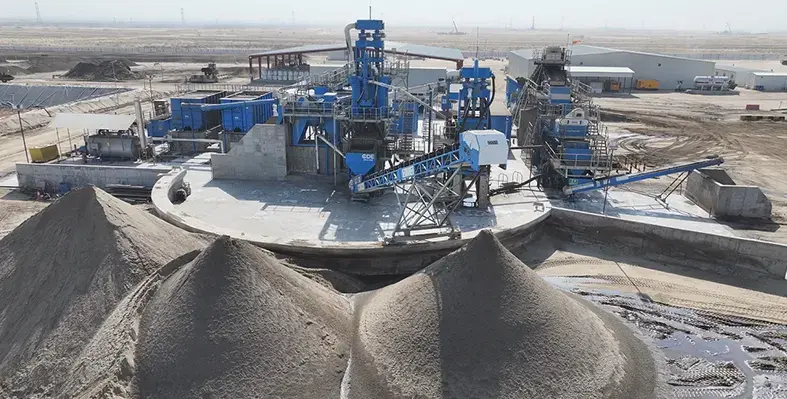Progress is being made in cleaning up the world’s biggest anthropogenic oil spill in Kuwait
Over a decade ago, the Kuwait Environmental Remediation Program (KERP) was established by the United Nations Compensation Commission (UNCC), Kuwait National Focal Point (KNFP) and Kuwait Oil Company (KOC) to address the extensive damage resulting from the Gulf War, which left Kuwait's landscape heavily contaminated with oil, including wet and dry oil lakes, contaminated soil, and sludge. The UNCC is contributing US$3bn towards the clean-up of 300 sq. km with around 26mn cubic meters of oil-contaminated soil.
Part of this remediation work is managed by KAK-LAMOR JV/C, a joint venture between Kuwaiti EPC contractors Khaled Ali Al-Kharafi & Brothers Co. and Finnish remediation specialists Lamor. KAK-LAMOR JV/C are undertaking two remediation projects, one in northern Kuwait, and another in southern Kuwait which together account for around one quarter of the contaminated area. More than eight million tonnes of soil have been cleaned through washing and bioremediation as part of KAK-LAMOR JV/C’s clean-up efforts.
CDE, a leader in wet processing solutions, was appointed by KAK-LAMOR JV/C to supply two soil washing plants to support soil remediation efforts, one each in north and south Kuwait, in conjunction with its local partner Gulf Center United Industrial Equipment Co. Both facilities are now operational, with a capacity ranging from 50-100 tonnes per hour (tph) depending on the fines content of the feed material.
As the material is very diverse and has varying age particle size distribution (PSD), both soil washing and bioremediation are being used in this project. While the majority of the material will be processed through bioremediation, soil washing is preferential for soils with greater than 5% level of contamination.
Soil washing offers a highly efficient remediation strategy. It can provide a throughput of up to 250 tph in one line which ensures fast treatment times and makes it ideal for large volumes, while the plant’s compact footprint minimises land use. Since washing preserves the biological structure of the soil, treated soils remain biologically intact and suitable for recultivation. Soil washing also scores highly on ESG metrics thanks to its material recovery and reduced environmental liabilities. It is also easily integrated with treatments such as bioremediation or thermal desorption units (TDU), when needed as part of a treatment train. In the northern facility, the washed soil has an average clean output of <1%, which is then on some occasions processed by bioremediation.
Darren Eastwood, business development director at CDE commented, “The significance of this project cannot be understated. This program, the largest of its kind, aims to remediate and restore the affected areas, focusing on both environmental and socio-economic rehabilitation. The comprehensive approach of KERP includes cleaning, remediating, and revegetating the impacted zones to restore ecological balance and support the well-being of future generations.
“We have significant experience with this type of material which can be challenging to process, but we have a track record for successfully transforming this matter into valuable products which can be repurposed. And we can already see from the success of this project that washing works and is delivering the results we need. This cleanup effort is not just about restoring the land, it has major health and social implications, ensuring safer environments for communities and supporting Kuwait’s long-term sustainability goals.”
Completion of this project will offer significant opportunity in Kuwait, with recultivation projects already underway, and the Kuwaiti government plans to grow trees and introduce animals back to the area.
It is expected these sections of the soil remediation project will be completed in early 2026.








